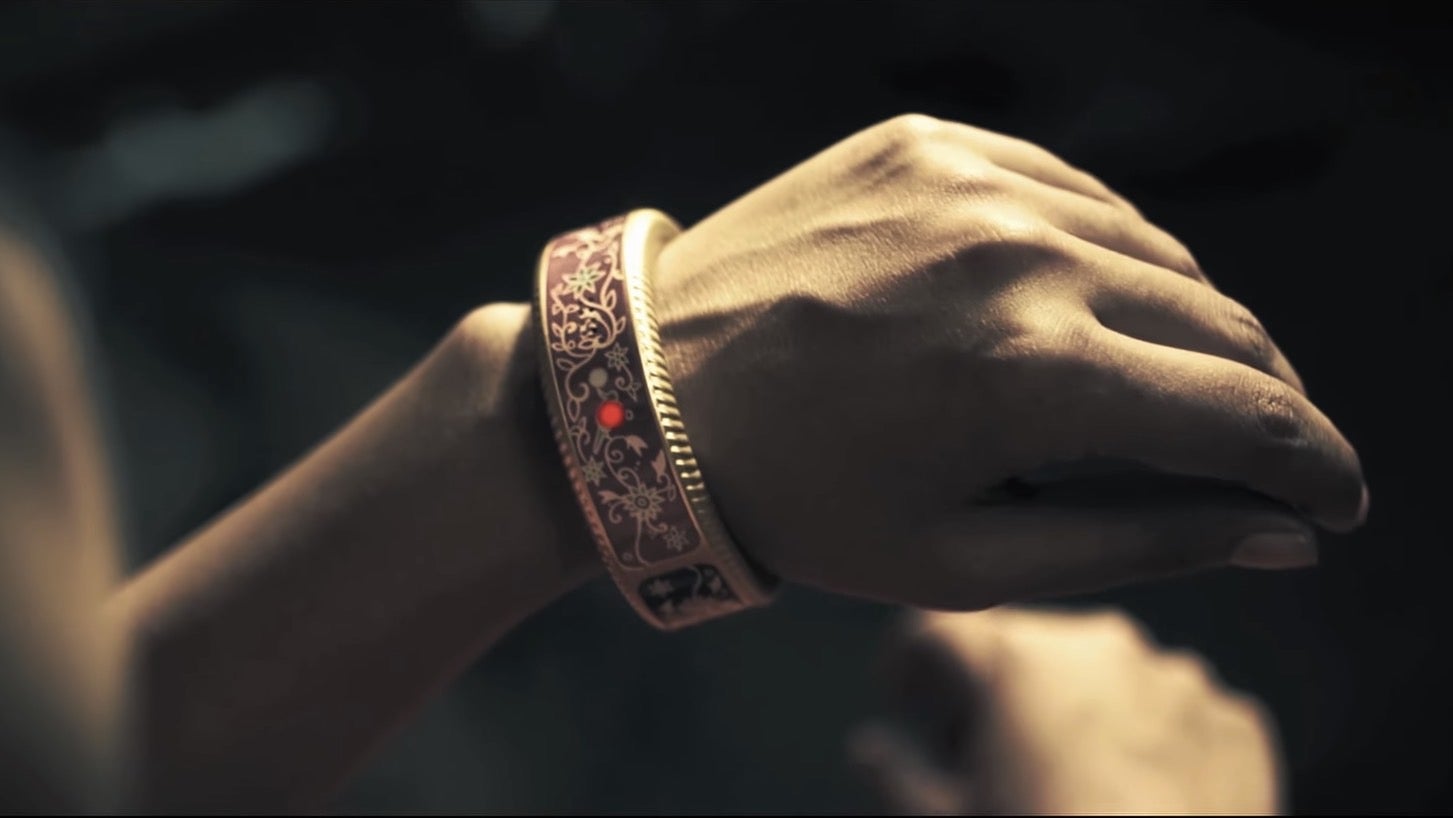A new smart bangle is designed to prevent pregnant women from dying in rural south Asia
Globally, 830 women die from pregnancy- or childbirth-related complications every day.


Globally, 830 women die from pregnancy- or childbirth-related complications every day.
Nearly all of these deaths occur in developing countries. For instance, only nine mothers died for every 100,000 babies born in the UK in 2015 but in Bangladesh, there were 176 maternal deaths per 100,000 children. The issue is especially pressing in rural parts of developing countries plagued by poverty and inadequate or inaccessible health care services, where good health choices are often thwarted by deep-seated cultural practices like belief in witchcraft or husbands and in-laws with decision-making power, according to USAID and the Population Council.
A Bangladesh-based tech company believes it has an answer: a smart bangle, made of water-resistant, highly durable plastic in order to withstand the rigor of rural life, developed by Grameen Intel Social Business Limited to improve maternal wellness and prenatal care,
Disguised as an ornate piece of jewelry to blend in with other bangles, the COEL (short for “carbon monoxide exposure limiter”) is a smart wristband with a built-in speaker that educates women by playing a set of 80 pre-recorded pregnancy-related messages over the course of the pregnancy. It plays two messages per week, giving women tips about when and what to eat, and providing reminders to visit the doctor.
The bangle comes with a built-in battery with a 10-month lifespan—enough to last through a complete pregnancy term. After that, it can be recharged and reused. The product will first be sold in Bangladesh and India, and then launched in Nepal.
As its name suggests, the COEL bangle also has sensors to detect and alert pregnant women if they’re exposed to unhealthy levels of carbon monoxide, which can result from “daily activities like cooking which often involves burning wood, charcoal, or animal dung,” Grameen writes on its website. Carbon monoxide exposure during pregnancy has been linked to an increased risk for stillbirths and birth defects.
The bangle may offer immediate respite but it doesn’t help women—compelled to work and cook in harmful conditions—to earn money or feed their families every day. ”If the product tells me the area I am in has high levels of carbon monoxide and that I should leave the kitchen, the food still needs to be cooked,” says Matthew Bunyi, with the Abdul Latif Jameel Poverty Action Lab, South Asia. ”The more realistic and actionable information might be to make a small chimney or cook outdoors.”
In addition, says Bunyi, every pregnant woman is going to have different needs—something the bangle, with its prepared advice, won’t understand. ”If I need to have more protein this month,” he says, “does the device tell me which items have protein and where I can get them?”
And even with the advice that the COEL bangle can offer, pregnant mothers simply may not have enough money to purchase better foods, pay for medical services, or take off work during pregnancy. “There could be problems of access; clinics or midwives are simply too far,” Bunyi says. “Other dynamics like distrust of government could also deter people from going to clinics.”
Taking charge
Grameen says its COEL bangle is primarily meant to give women in patriarchal societies of south Asia more autonomy.
In India, for example, most women have to borrow phones from their male family members; less than 46% of women own and use their own mobile phone. Among those who do, over 81% have never accessed the internet on their phones. That, says Grameen’s chief operating officer Pavel Hoq, is why the company went with a standalone wearable, and not just another mobile app. ”We realized a wearable device solely for women, something she would likely wear all the time, would be better to connect with women in rural areas,” Hoq told the Thomson Reuters Foundation.
COEL does not need to be paired with a smartphone, nor does it need an internet connection to function.
However, the maternity band, at $12-15, is not cheap. Bunyi says the average farmer in Bangladesh earns something like $3.75-5 a day—i.e, when they have work. “Many farmers often go through periods without any work,” Bunyi says, and “the price point (for COEL) appears to be high relative to how much they earn.” It’s not clear that rural Bangladeshi women would be able to afford it without government subsidies or some sort of installation payment plan. Grameen says it does not have the infrastructure to handle subsidies or installment payments, but would be open to it if a partner organization stepped up.
Moreover, as long as the husband is the only breadwinner in the family, it will still be up to the man to get the device for the woman in the first place—a truth even Grameen couldn’t ignore in its ad campaign.